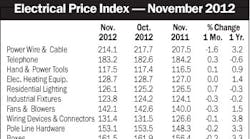The National Electrical Manufacturers Association (NEMA), Rosslyn, Va., welcomed the passage by the U.S. Senate of a bill directing the U.S. Department of Transportation (DOT) to ensure that most U.S. regulations governing air shipment of lithium batteries are harmonized with standards written by the International Civil Aviation Organization (ICAO). The legislation also covers products that contain or are packed with lithium-ion or lithium-metal batteries.
On February 6, the Senate approved the conference report for HR 658, the Federal Aviation Administration (FAA) Modernization and Reform Act, in a bipartisan 75-20 vote. The House approved the bill on February 3 by a 248-169 vote. Specifically, the legislation requires that DOT agencies may not put greater restrictions on transportation of lithium metal or lithium ion cells or batteries than the requirements of the ICAO Technical Instructions for the Safe Transport of Dangerous Goods by Air.
NEMA also voiced its support for the Department of Energy’s (DOE) proposed rule to increase the energy conservation standards for distribution transformers. Throughout the fall of 2011, DOE hosted a negotiated rulemaking, where stakeholders gathered to discuss the justification for higher energy efficiency standards for all three classes of regulated distribution transformers: low voltage dry-type, medium voltage dry-type, and medium voltage liquid-immersed. Under current standards, distribution transformers are already the most energy-efficient product that DOE regulates at 97%–99% efficiency, but NEMA members believed there was an opportunity to increase energy conservation without unduly burdening the sectors that supply materials for transformers, the manufacturers or the users of transformers. NEMA said its member companies are united behind a recommendation made to DOE that would spur significant, long-term energy savings in distribution transformers.

